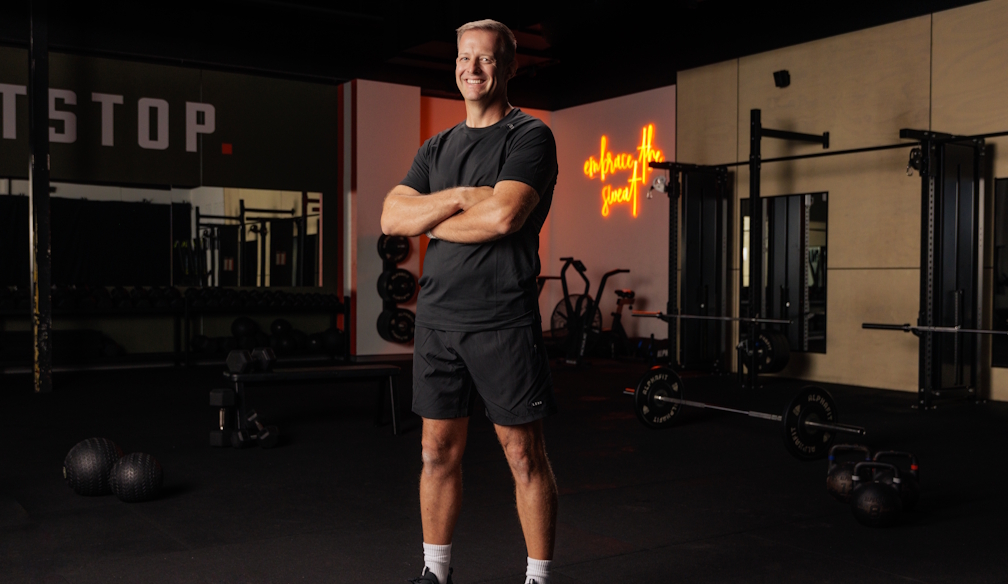30-minute F1-inspired workout to try at home

With the Formula 1 season in full swing, there has been a 5,000% increase in worldwide searches for “How to be an F1 driver” in the past 30 days. There is therefore no doubt that the F1 drivers have motivated aspiring drivers to chase their racing dreams and strap into the driver’s seat. However, becoming an F1 driver is not as easy as just turning a steering wheel, it requires years of relentless training, razor-sharp reflexes, peak physical fitness, and a deep understanding of race craft.
Keen to shed light on what it takes to train like an F1 driver, the experts at Fanatix have partnered with a qualified personal trainer to uncover the hidden physical demands of Formula 1, revealing how everyday people can use the same techniques to boost their posture, reflexes, and mobility.
Lee Mitchell, qualified personal trainer provides his F1 inspired everyday workout plan:
“This workout targets exactly what F1 drivers need — strong posture, solid core stability, lightning-fast reactions, and mobile joints, and anyone can do it at home. Beginners can start off by carrying out the main circuit once.”
Warm-up (5–7 minutes)
-
Neck mobility circles — 3 slow circles each way, to loosen up the neck for posture work.
-
Cat-cow stretch — 8 reps, to prepare the spine.
-
Arm swings + torso twists — 20 seconds each.
Main Circuit (Repeat 2–3 times)
-
Neck isometrics (for G-force resistance)
-
Sit upright, place your palm on the side of your head, push your head into your hand without moving it.
-
Hold 10 seconds each side, front, and back.
-
Seated band pull-aparts (for upper back posture)
-
Use a resistance band at chest height, pull it apart slowly, squeezing shoulder blades.
-
12 reps.
-
Plank with shoulder taps (for core + stability)
-
In a plank, tap the opposite shoulder without hips swaying.
-
10 taps each side.
-
Single-leg balance with ball toss (for reflexes + proprioception)
-
Stand on one leg, gently toss and catch a tennis ball against a wall.
-
20 catches per leg.
-
Hip 90/90 mobility switches (for lower body rotation)
-
Sit with knees bent 90°, rotate hips from side to side without lifting feet.
-
10 each way.
Cool-down (3 minutes)
-
Neck side stretches — 20 seconds each side.
-
Child’s pose — 30 seconds.
-
Seated hamstring stretch — 20 seconds each leg.
Lee Mitchell, a qualified personal trainer, comments…
“Becoming an F1 driver is one of the most extreme physical challenges in sport. You’re dealing with fighter-jet G-forces, sauna-level heat and the need for split-second precision for up to two hours straight. Requiring not only physical strength and endurance but also exceptional mental resilience, precision, and adaptability under extreme pressure. Every muscle, from the neck to the core, has to be trained for precision, endurance, and lightning-fast reaction times. In pure fitness terms, it’s only just behind astronaut training - and in some ways, it’s tougher still.”
The underestimated athletic demands of Formula 1:
-
Sustained high heart rates: Drivers keep their heart pounding at over 170bpm for up to 90 minutes.
-
Extreme G-force: They withstand up to 6G in corners — that’s six times their body weight.
-
Intense heat: Cockpit temperatures can soar beyond 50°C.
-
Microsecond reflexes: Every decision is made at 200mph, and reactions need to be in under 0.2 seconds to avoid disaster.
-
Severe fluid loss: Drivers can lose 2–4kg of fluid, burn 1,500 calories, and shed up to 5% of body weight in a single race.
-
Constant core activation: Core muscles remain engaged for the entire race to stabilise the body.
-
Cognitive load from strategy: Processing live data, tyre management, and team communication while racing at full speed.
-
Limited recovery time: Just one or two weeks between back-to-back races during the season.
-
Weight management: Maintaining an optimal weight is critical for car performance, so drivers carefully balance calorie intake. Therefore, drivers must follow strict diets and training regimes — staying within weight limits is part of the job.









